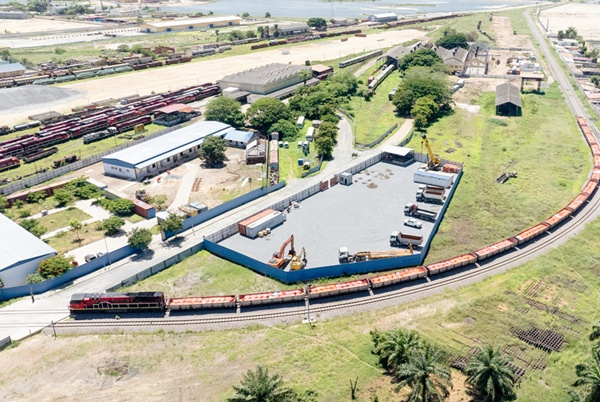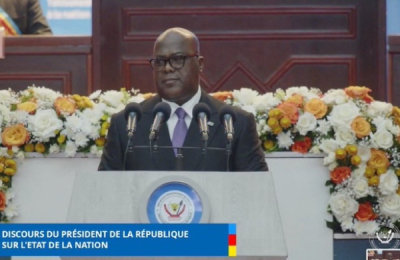Washington will continue supporting the Lobito Corridor, a rail and road project linking the Democratic Republic of Congo’s mineral-rich regions to Angola’s Atlantic port. Massad Boulos, U.S. Senior Advisor, said so in a press briefing on April 17, 2025, after visiting the DRC, Rwanda, Uganda, and Kenya.
“We are aware that we fully support the Lomito Corridor, for example, and this is a huge project which is extremely important and vital for the economies of not only Congo or the DRC, but also Zambia and Angola, but all other regional countries will benefit from it,” Boulos stated, noting that the U.S. Development Finance Corporation is a major financier, with funding expected soon.
The American official also detailed ongoing discussions with DRC President Félix Tshisekedi’s administration to develop infrastructure on the Congolese side. “We are now discussing with the Congolese Chesikides administration to work on the Congolese side with regards to railways, highways, but also power projects, including dams and hydroelectric projects,” he said. These talks aim to address the DRC’s infrastructure deficits, critical for mining operations and economic growth in a country with over 60% of global cobalt reserves.
The announcement comes as the Trump administration, which took office in January 2025, has reduced budgets for international development aid, raising questions about continued U.S. funding for projects like the Lobito Corridor. No specific funding commitments were detailed in the briefing, leaving uncertainty about the scale of U.S. financial involvement.
The U.S. commitment coincides with its growing role in mediating the conflict in eastern DRC, where the M23 rebel group, allegedly backed by Rwanda, is in a clash with Congolese forces. In this regard, Boulos highlighted progress in recent DRC-M23 talks in Qatar and U.S. efforts to negotiate a peace agreement, alongside discussions for a minerals deal to boost American private sector investment. The deal aims to secure U.S. access to DRC’s critical minerals, though specifics remain under negotiation.
For now, China dominates Infrastructure development projects in the DRC, often through minerals-for-infrastructure agreements. The World Bank, African Development Bank, France’s AFD, and Belgium’s Enabel are the main competitors offsetting Chinese dominance. “With regards to other companies and other players and other countries that are existing and already operating there, it’s none of our business to interfere with what they’re doing. We’re pursuing our own ventures, and we’re facilitating investments of our own companies. And time will tell. I think very soon the Congolese people will realize who their best partners are,” Boulos declared.
The Lobito Corridor is central to the DRC’s economic strategy, particularly for eastern regions like Katanga and North Kivu, where conflict disrupts mineral supply chains. The project aims to streamline cobalt, copper, and tin exports, reducing reliance on southern African routes and boosting trade efficiency. By addressing economic drivers of conflict, improved infrastructure could stabilize mining operations, create jobs, and support peace efforts for the DRC.
Written by Georges Auréoles Bamba
Edited by Ola Schad Akinocho










